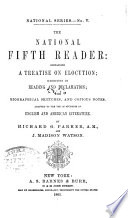 In every work regard the writer's end, Since none can compass more than they intend; And if the means be just, the conduct true, Applause, in spite of trivial faults, is due. In every work regard the writer's end, Since none can compass more than they intend; And if the means be just, the conduct true, Applause, in spite of trivial faults, is due.  The two Cosmos - Page 353by Cosmos - 1861Full view The two Cosmos - Page 353by Cosmos - 1861Full view - About this book
 | Daniel K. Bennett - 1858 - 156 pages
...Pope: " Whoever thinks a faultless piece to see, Thinks what ne'er was, nor is, nor e'er shall be. In every work regard the writer's end, Since none can compass more than they intend ; And if the means be just, the conduct true, Applause, in spite of trivial faults, is due." THE AUTHOR.... | |
 | Alexander Pope - 1859 - 330 pages
...regular. Whoever thinks a faultless piece to see, Thinks what ne'er wfs, nor is, nor e'er shall be. In every work regard the writer's end, Since none can compass more than they intend ; And if the means be just, the conduct true, Applause, in spite of trivial faults, is due. As men... | |
 | Alexander Pope - 1860 - 632 pages
...regular. Whoever thinks a faultless piece to see, Thinks what ne'er was, nor is, nor e'er shall be. In every work regard the writer's end, Since none can compass more than they intend.; And if the means be just, the conduct true, Applause, in spite of trivial faults, is due. As men of... | |
 | Richard Green Parker, James Madison Watson - 1863 - 614 pages
...1. TTTHOEVER thinks a faultless piece to see ' i Thinks what ne'er was, nor is, nor e'er shall be. In every work regard the writer's end, Since none can compass more than they intend ; And, if the means be just, the conduct true, Applause, in spite of trivial faults, is due. As men... | |
 | Alexander Pope - 1863 - 334 pages
...regular. Whoever thinks a faultless piece to see, Thinks what ne'er was, nor is, nor e'er shall be. In every work regard the writer's end, Since none can compass more than they intend ; And if the means be just, the conduct true, Applause, in spite of trivial faults, is due. As men... | |
 | 1865 - 550 pages
...Freund, was er geleistet hat, Und dann erkeune was er leisten wollte." Or, as the English poet says— " In every work regard the writer's end. Since none can compass more than they intend." An observance of these two maxims would prevent much of the shallow criticism which exists, and which... | |
 | Bible Christians - 1865 - 602 pages
...Pope, — " Who thinks a faultless piece to see, Thinks what ne'er was, nor is, nor e'er shall be. In every work regard the writer's end, Since none can compass more than they intend, And if the means be just, the conduct true, Applause, in spite of trivial faults is due." I am glad,... | |
 | 1865 - 496 pages
...circumstances in and under which satire may have been used, what it effected, for we are told,— " In every work regard the writer's end, Since none can compass more th. n they intend." One of the earliest English writers of satire thus defines its purpose : — "... | |
 | Robert Cowtan - 1866 - 430 pages
...Authors. 387 " Whoever thinks a faultless piece to see, Thinks what ne'er was, nor is, nor e'er shall be. In every work regard the writer's end, Since none can compass more than they intend." I fear that I have sometimes inadvertently made use of that which others have written, inasmuch as... | |
 | Richard Green Parker, James Madison Watson - 1866 - 618 pages
...CRITICISM. "TTTHOEVER thinks a faultless piece to see VV Thinks what ne'er was, nor is, nor e'er shall be. In every work regard the writer's end, Since none can compass more than they intend ; And, if the means be just, the conduct true, Applause, in spite of trivial faults, is due. As men... | |
| |